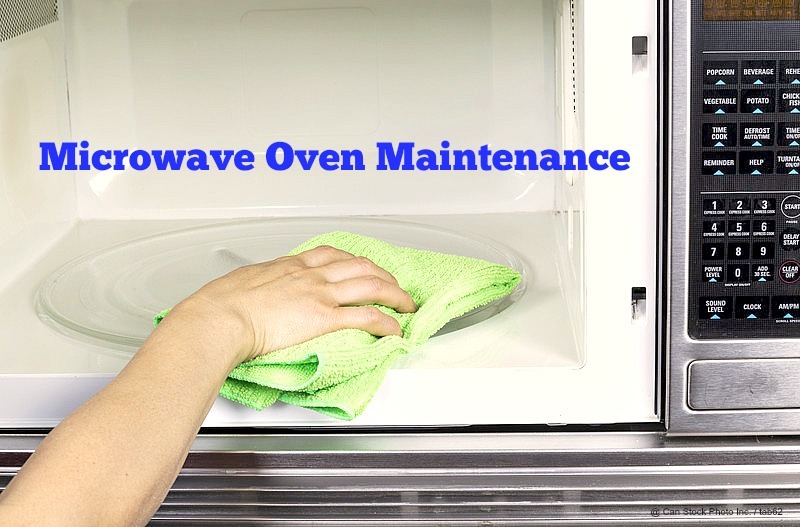Eastern North Carolina Important: COVID-19 Announcement.

We have come to rely daily on our microwave ovens for both reheating and cooking meals. Though microwaves are subject to heavy usage, we usually don’t give much thought to the maintenance that should be performed to prevent damage.
Microwave ovens typically last five to ten years. Following these safety and maintenance steps can significantly affect the longevity of this important appliance:
Be careful when heating water in a microwave. Water heated in a microwave can become superheated. The water will not appear to be boiling but will actually be much hotter than boiling. As soon as the dish is moved out of the microwave or an object is put into it, the water can burst vigorously out causing serious burns. To prevent superheating, do not heat the amount of water for any longer than is recommended. Put a wooden stir stick into the container before you start the microwave. Keep your face away from the dish when you remove it from the microwave oven.
Close the microwave door gently. Slamming microwave doors shut or pushing them closed with an elbow can cause gradual damage to the microwave latch. Most microwave oven door latch mechanisms have three switches that must close in a certain order. Damage to the door can also prevent the seal from fitting properly and keeping the microwave energy inside the oven. Close the door gently.
Install surge protection for your microwave. Electrical surges from lightning and power fluctuations can be especially damaging to microwave oven solid state circuitry. Installing a surge protector at the electrical outlet for the microwave is the most convenient solution.
Make sure dishware is microwave safe. Dishware that is safe for microwave use should be stamped on the bottom. Dishes that are not safe for microwave ovens will get abnormally hot and will be hotter than the food you are trying to heat. Any dishes with gold or silver rims or accents are not microwave safe. Never use even a small piece of aluminum foil in a microwave oven. When in doubt about a dish, play it safe and don’t use it.
Avoid operating a microwave when it is empty. When there is no food in a microwave, the energy that the microwave produces can only be absorbed by the various microwave components. Microwave parts such as the magnetron can be permanently damaged. This is a costly repair.
Clean the interior of the microwave frequently. Cleaning your microwave is one of the easiest ways to extend its life. Food splatter and particles absorb the microwave energy when the oven is running causing burn spots and possible damage to microwave components.
Prevent food splatter by using a microwave cover, paper towel or wax paper. Warm water and dish washing soap can remove most food particles. Placing wet paper towels in the microwave and running on high for a minute can loosen encrusted food so that it can be easily wiped off. Also, heating a bowl of water with dish washing liquid or white vinegar in it can help loosen grime.
Performing maintenance on your microwave oven will keep it the reliable appliance you count on each day. Following microwave safety tips will protect you and your family.
Please Like Us on our Facebook page or Follow Us on Google Plus
If you have questions about your home’s foundation or foundation repairs, contact Atlantic Foundation and Repair at 919-855-0855.